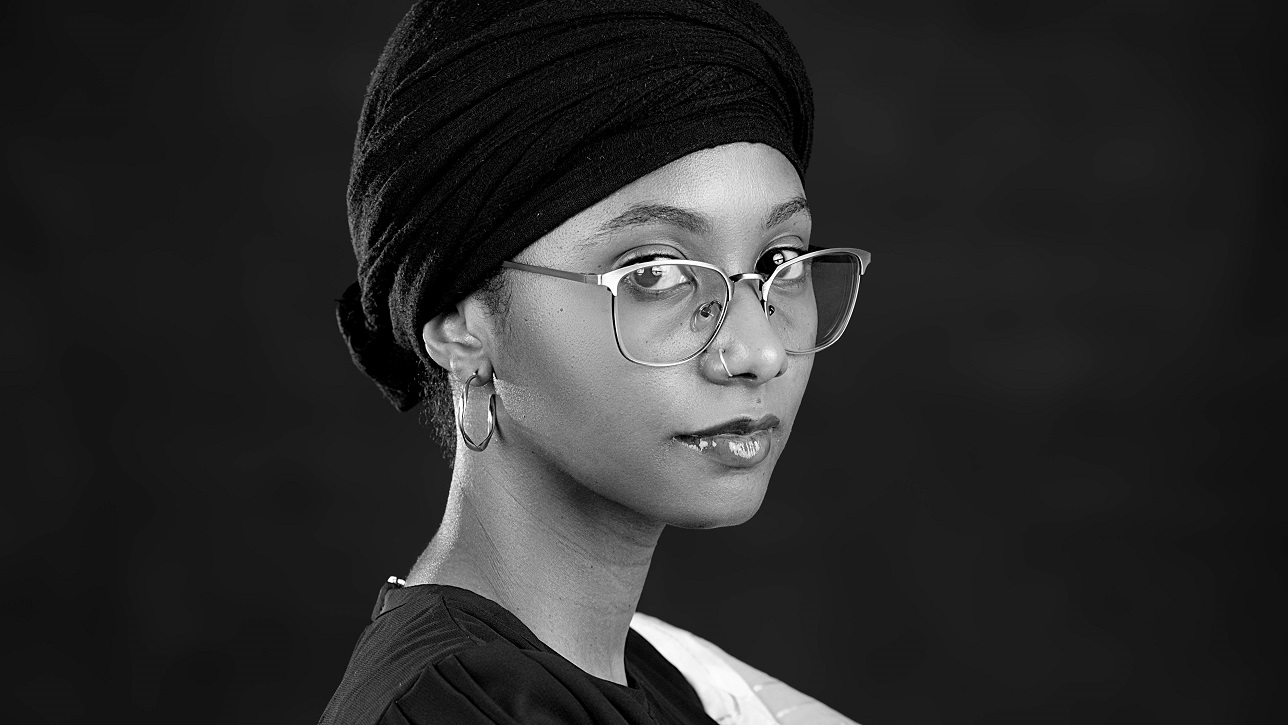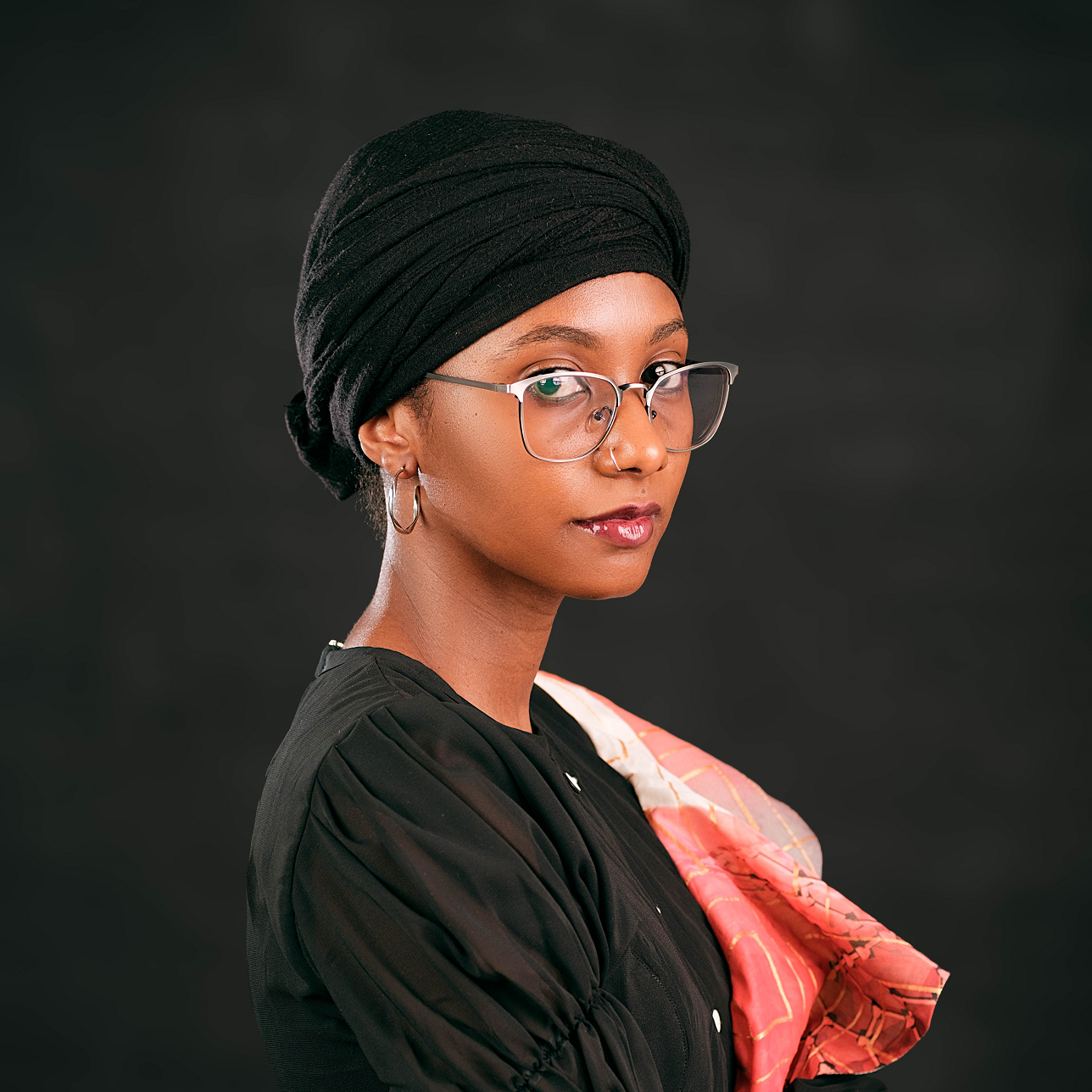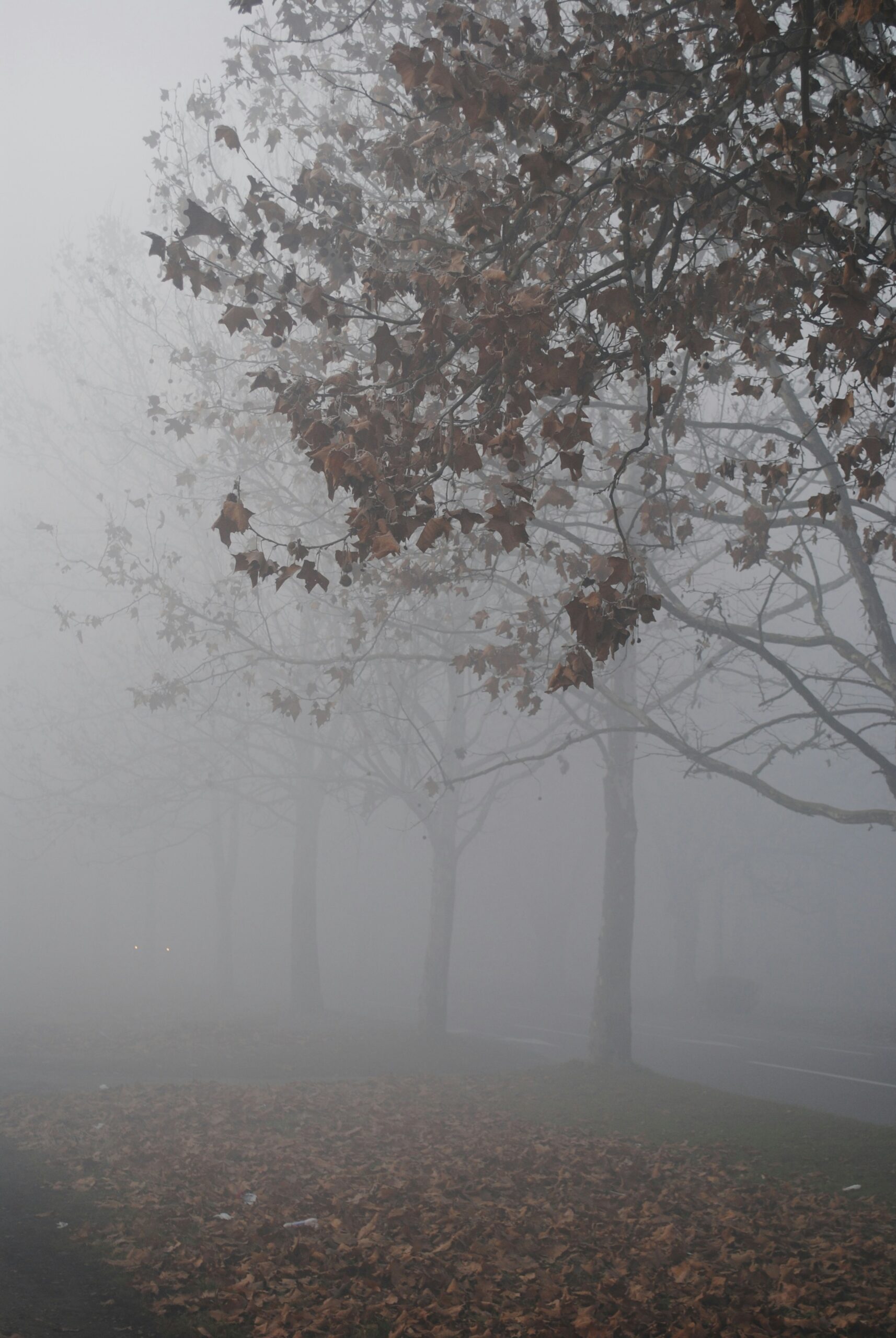Richard Ali + Hauwa Saleh. Listen to the interview here.
What is the process of writing a poem like for you? Is it a lot of hard work or easy?
Hauwa Saleh : Poetry is both the map and compass I use to navigate life. I write from a very deep place. I usually can only write what I feel deeply about. So long I feel it, the poetry comes whether I like it or not. Some poems are more stubborn than others, but it always comes when it needs to. It used to be easier for me to write poetry, but now, I don’t write half as often. Sometimes, writing eludes me even when I have things I want to say choking my throat. So, it depends on when the poems decide to grace me with their presence. And when they do, I let them. Sometimes, they do not come when or how I want them to but I have learnt to be grateful for every time I get to write again.
Please describe your sense of identity in this or any possible world in imagery or metaphor?
Hauwa Saleh: Sometimes, I need something to remind me I exist in the world and poetry usually brings both the questions and the answers. I am very concerned about Identity and what that means for my existence, and I love being as authentic as I can be whether it’s in what I write or what I wear or what I chose to do with my life. If we do not know who we are, then how can we find out what we are here for? When I write it’s usually to answer a question on identity and belonging and what that means for me and the people around me.
And each time I discover a new version of myself, I let it introduce myself maybe through poetry or a new lipstick color. I see the search of identity as journey. I am changing and growing, therefore there are always new things to discover and I am always willing to listen to what each and every version is trying to tell me.

Hauwa Saleh
If any of your poems could literarily save a person’s life, which poem would it be and can you describe the person whose life you think it would have saved?
Hauwa Saleh : If poetry could save a life, I think it would have save my father’s. After my father passed away, I wrote so many poems it felt like a prayer begging for something already lost. And I wonder what it means, to have someone bring you back over and over with words that holds so much weight yet can do so little.
A few months before he passed away, I stopped writing. No matter how hard I tried. But I started the morning he passed and I just couldn’t stop. I wrote so many poems it felt like I was finally begging him to stay.
White Is the Shade of Surrender
by
Hauwa Saleh
(published in Lolwe)
My brother wore my father’s white kaftan today
It fit so perfectly that for a moment
I could picture exactly what he once looked like in it
The way it sat on his body
Just enough to cover his whole being
Without smothering him
The way his funeral shroud did
And for a moment
Everything could be true
In another universe
He was well enough to visit friends before he could leave
No medications leaving him delirious on the bed
No heart-wrenching screams escaping his lips
He could laugh and crack jokes
And I got to say goodbye
In another world
He wore this white kaftan on his last day
Even the pain knew better than to stay close
My hands trembled as I googled what the white flag truly means
But I slipped into my grief and typed a white shroud instead
White is the colour of peace
And surrender
But I am still struggling to wave mine in the wind.
What does Africa mean to you, as potential or reality?
Hauwa Saleh: I only see Africa through other people’s eyes. As someone who haven’t yet travelled even to Niger, Africa is something that feels familiar yet strange. I am Nigerian, northern Nigerian, and Fulani. I am already grasping with the complexities of these identities. I struggle to think of Africa as a reality, until maybe someone makes a stupid comment online or in a movie, and I am forced to see this identity that has been forced upon me and resonate with what it means it be African. As a people, I think we can be so much more for ourselves but I also understand it’s not in black and white.
Could you share with us one poem you’ve been most impressed or fascinated by? Tell us why and share favorite lines from it.
Hauwa Saleh: I can’t choose one poem; I think there is a poem for every feeling and that’s the beautiful thing about poetry. I have so many favorites and that can change at any given time. But some lines that always brings me home to myself are ‘Sometimes, the most healing thing we can do is remind ourselves over and over other people feel this too’ by Andrea Gibson. This line, from the poem ‘The Nutritionist‘ reminds me of how connected we are as humans and how necessary it is to speak up and speak out in order to combat the isolation we feel going through life.
‘There are enough ballrooms in you, to dance with everyone you have ever loved.’ from the Titanic poem by Laura-lambe Brown. It’s such a beautiful piece and one of my favorites of all time.
‘Love is born between the teeth in the aftermath of war,’ by Ariana Brown and AW. I think of this line from ‘Anger’ often as it just captures the thin line between love and survival and I love the poem because of how it captures the emotion of anger as a tool for change and activism. I love poems that show emotions for what they really are, necessary parts of being human.
‘The fear of joy, is the darkest of captivaties.’ Phil Kaye. I find the poem ‘Teeth’ incredibly haunting and human and it’s just such a beautiful narrative poem.
‘Today, I wear the yellow dress and laugh with all my teeth,’ by Safia Elhillo. I often think of what it means to find joy in the face of dealing with the other side of being human and I think this poem captures it perfectly.
SAFIA ELHILLO
SELF-PORTRAIT WITH YELLOW DRESS
(published in BigLucks)
i believe that sometimes we do not die
i will not believe that to be housed in a body
that is black is to be dressed always
in black for the funeral we live forever
our mouths open & a song falls out thick
with a saxophone’s syrup & all our dead
in the ground make this land ours & all
our missing fathers make us everything’s child
today i did not dress for a funeral today i wear
the yellow dress & laugh with all my teeth
today my lost ones are not lost to me they live
in the wind that gathers my skirt
today this is my country today i say their names
& the all holes left behind shaped like blackgirls
& blackboys are lit up by hundreds of faraway stars
today i woke up & was not dead & tomorrow
might be different but tomorrow does not yet exist
so i hold my mother’s hand & kiss the brown valley
between each knuckle my brother opens his mouth
to laugh & the light pours in through the gap in his teeth
& no one will ever again say my eyes are too serious
i press my body to a man that i find beautiful & sway
to a song that knows us i live forever
with my feet in my grandmother’s lap
& i live forever by the water
with the sun spilled over me remember me this way
& when they come for me play the song i love
into the space i leave behind
And from my poems I keep going back to ‘How else can you hold a grieving body, if not to rest it gently against another grieving body and let it sway to the best of memories,’ because what are humans, if not grieving creatures reaching out to each other for survival [from Sometimes my mother’s grief. ..]
‘Sometimes it is not ignorance but knowledge that kills,’ I love this line from one of my favorite poems ‘Our grandmother’s Songs’ which examines what it means it be a woman in this society.
‘Here, not every opening is a wound, not every raised fist is an attack,’ is one of my favorite lines from a poem about sisterhood and the intensity and safety of female friendships which plays a very important part in my life.
‘Black is not a color because it absorbs all, perhaps thats why its a favorite for people who search for space even within their own bodies,’ ‘My body is a black hole that has learnt to absorb all,’ these two lines are from a poem examining identity.
And ‘When you practice forgetting, you do not fight with memories, you give them space to replay themselves over and over again, until they fade away from remembering.’ I keep going back to this poem because I need reminders of what it means to let yourself go through the process of healing.
Hauwa Saleh Abubakar is a Nigerian writer, poet and journalist. Her work has appeared in Lolwe, Ake Review, The Weight of Years: An Afroanthology of Creative Nonfiction, Agbowo and more. Hauwa is the founder of an organic tea brand, Maimah’s Cup of Wonders, and is currently a journalist with HumAngle Media.
She considers herself an accidental lawyer and aims to make people feel something with her works
- Poets Talk: 5 Questions with Kayeon Onyeka - February 25, 2025
- Poets Talk: 5 Questions with Jakky Bankong-Obi - December 3, 2024
- Poets Talk: 5 Questions with Odu Ode - November 26, 2024













Leave a Reply